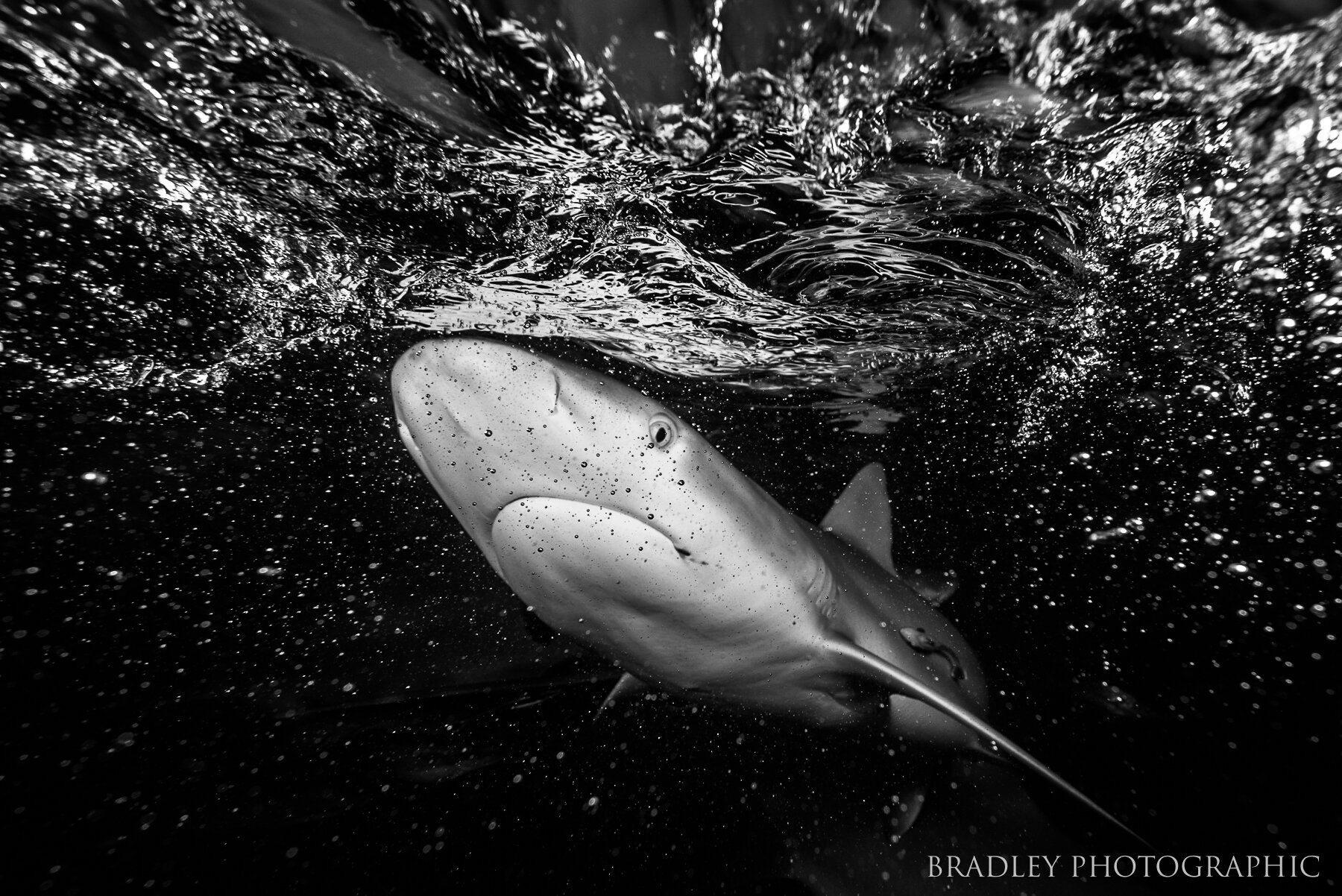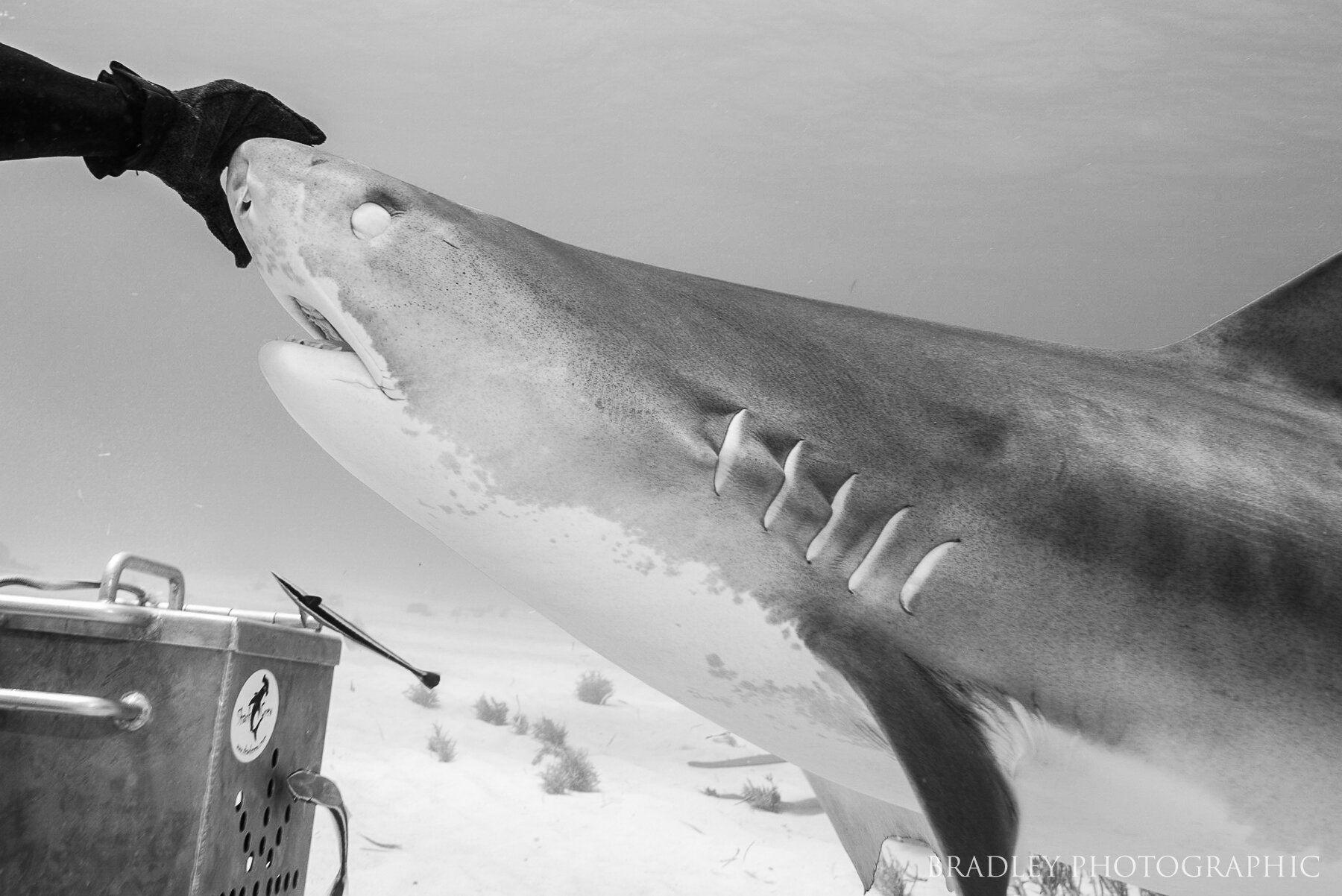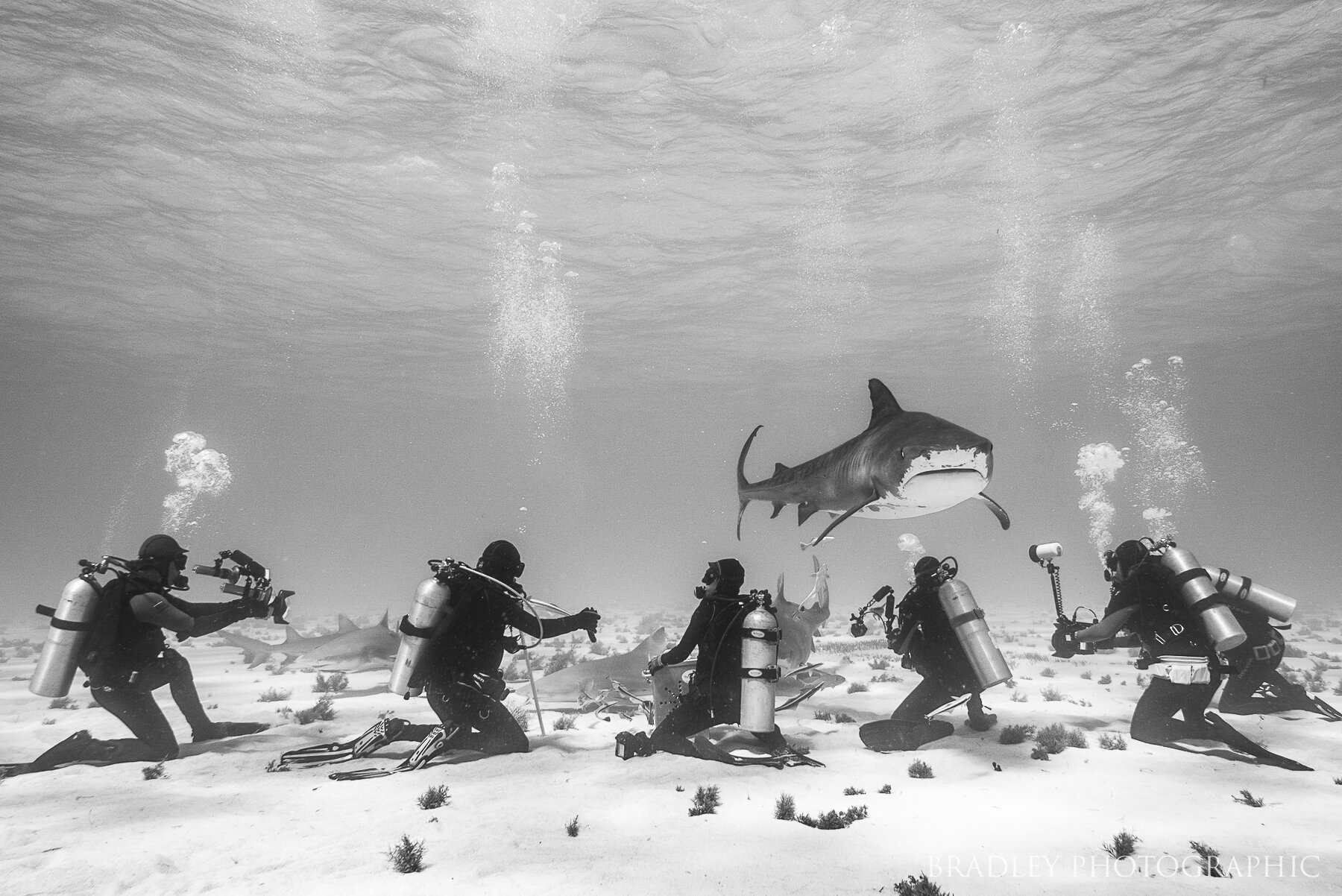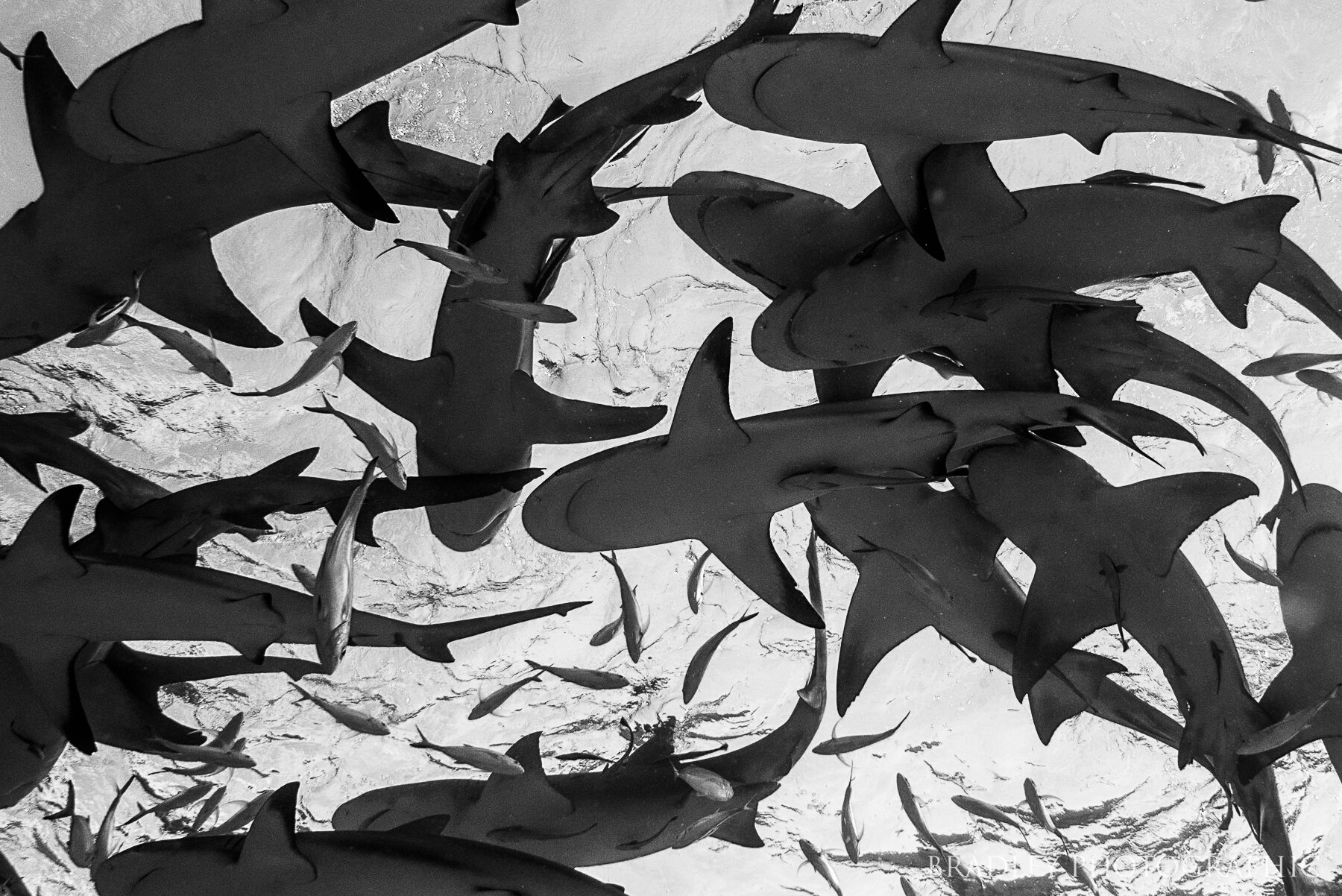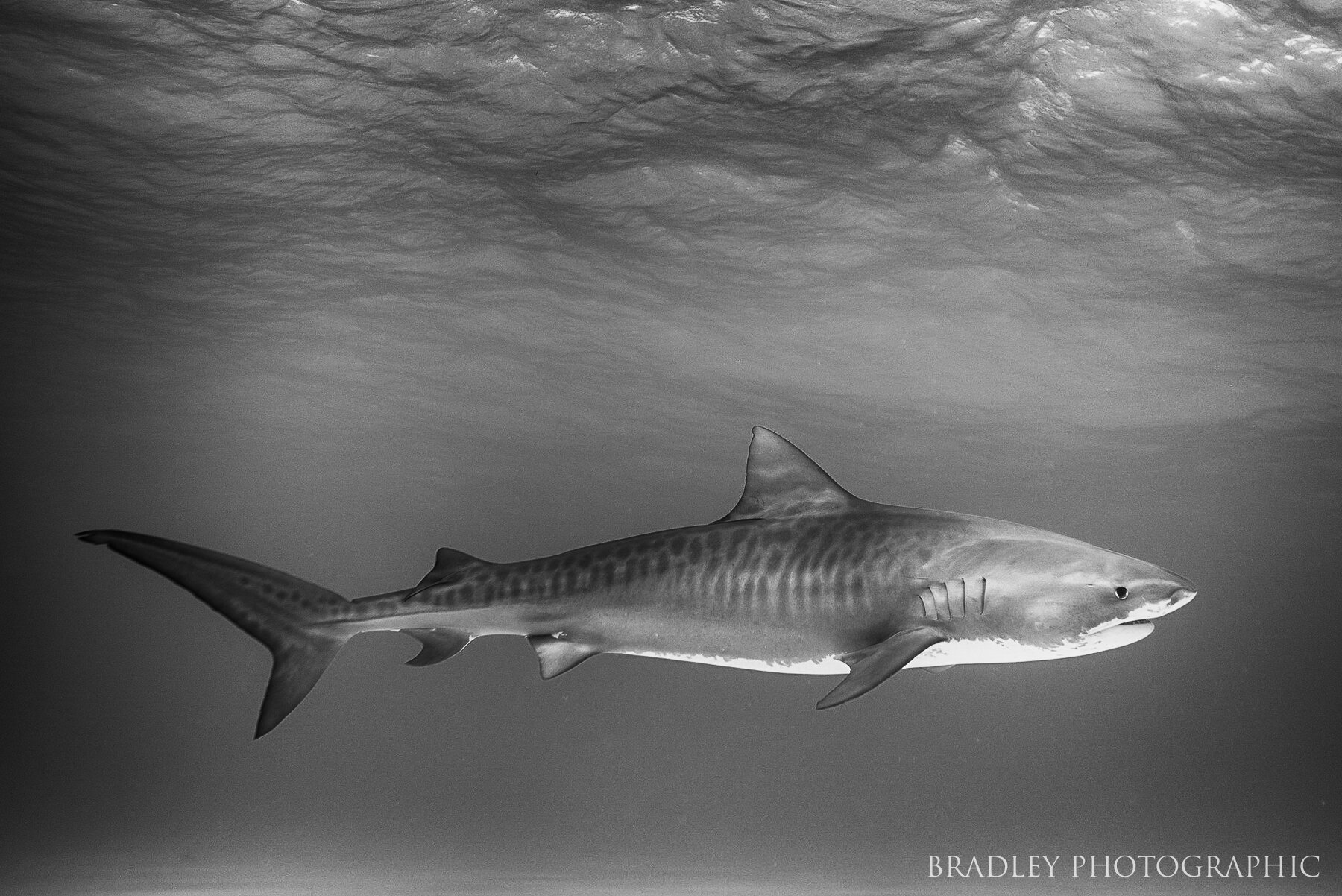The Big, Toothy, Scary, Stealthy, Apex Predator
The relationship between the shark and shark wrangler is based on trust and familiarity.
It’s here folks… Shark Week! Love ‘em or hate ‘em — the shows that air on cable, that is — Shark Week is at least a time of year where people are tuned into sharks just a bit more than usual. Even though some say (I’m certainly one of these who say it) that the shows are sensationalistic, they also spark a dialogue. Whether we fear sharks or are in awe of them, sharks are an invaluable component to the health of our oceans. And because shark species around the world are being threatened, dialogue matters.
A great hammerhead shark from Bimini, The Bahamas
In short, sharks are misunderstood. The word “shark” is synonymous with danger, but my personal experience has proven that they are more beautiful than formidable. I still remember my first real shark experience. I was diving cageless with large tiger sharks (and other species) in the Bahamas. At first, I was, well, afraid. I admit it. I have nothing to prove, and it’s no big deal. I hope most people would be. Jumping in the water with a large apex predator that’s much faster, stronger and toothy than the dive buddy swimming next to you requires a dose of respect. But do keep in mind where that fear comes from. It comes from that obvious notion that it’s possible one may become shark bait, a tasty little morsel for the big beast to feast on. Yet, when experiencing a large tiger shark for the first time, I almost immediately realized that there was no predator/prey relationship. I wasn’t food, and didn’t resemble anything close to food. At least at the time I wasn’t, and it was clear the shark had no interest in me.
In short, sharks are misunderstood. The word “shark” is synonymous with danger, but my personal experience has proven that they are more beautiful than formidable. I still remember my first real shark experience. I was diving cageless with large tiger sharks (and other species) in the Bahamas. At first, I was, well, afraid. I admit it. I have nothing to prove, and it’s no big deal. I hope most people would be. Jumping in the water with a large apex predator that’s much faster, stronger and toothy than the dive buddy swimming next to you requires a dose of respect. But do keep in mind where that fear comes from. It comes from that obvious notion that it’s possible one may become shark bait, a tasty little morsel for the big beast to feast on. Yet, when experiencing a large tiger shark for the first time, I almost immediately realized that there was no predator/prey relationship. I wasn’t food, and didn’t resemble anything close to food. At least at the time I wasn’t, and it was clear the shark had no interest in me.
A split shot of a lemon shark at sunset.
As reality set in and my guard was lowered, I lifted my camera to explore other sides to the sharks that swam around me. I’ve discovered over the years shooting sharks that they have unique features, they are graceful, powerful, vulnerable, have distinct personalities and they can be quite inquisitive and rational. The images here are from a recent expedition to both the shallow banks off of Grand Bahama and Bimini Island, in the Bahamas. The shapes, tones, textures, movements, patterns, and behaviors of the sharks we encountered reveal a side that’s less toothy then you might be used to, but I think it’s important these animals are experienced with more appreciation and less apprehension.
Peter Benchley, the author of Jaws, the novel that was made into the blockbuster horror film by Steven Spielberg, once said, “We don’t just fear our predators, we are transfixed by them.” People love creatures and monsters. Just look at the movie industry and what it produces, from vampires to Xenomorphs (the creature from the Alien movie franchise) and sharks are at the top of the list of scary. Sharks are perfect animals to light up our amygdala — that part of our brains that stores fear memories. Sharks are imposing, toothy, big, scary, stealthy apex predators, and people are naturally curious about what they fear.
According the ISAF (International Shark Attack File), there are about 80 “unprovoked” shark attacks each year worldwide. Statistically this is a very small number when compared to other formidable threats. For example, you are a 1,000 times more likely to die while bicycling, 132 times more likely to drown at the beach and 33 times more likely to get bitten by a dog. But here’s my favorite: When looking at shark injuries in the US, there are about 12 incidents that occur each year on average, while in the state of New York alone, there are well more than a thousand bites that occur each year … by other humans. That’s right, you are ten times more likely to get bit by your fellow New Yorker than a shark! So before you go asking your neighbor for a cup of sugar, ask yourself, “Wouldn’t it be safer if I just went swimming with sharks?”




